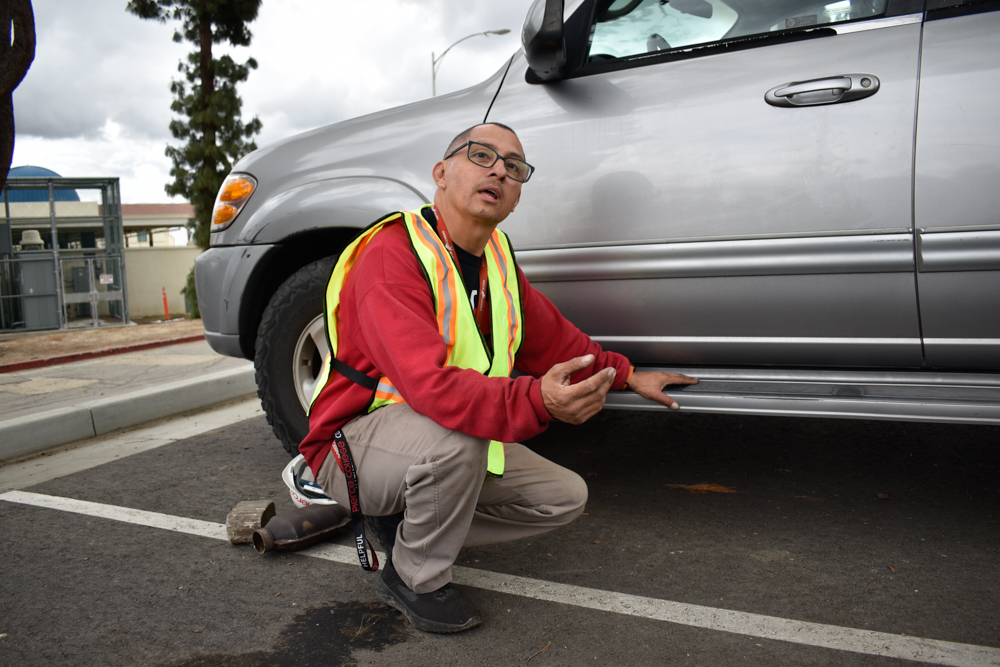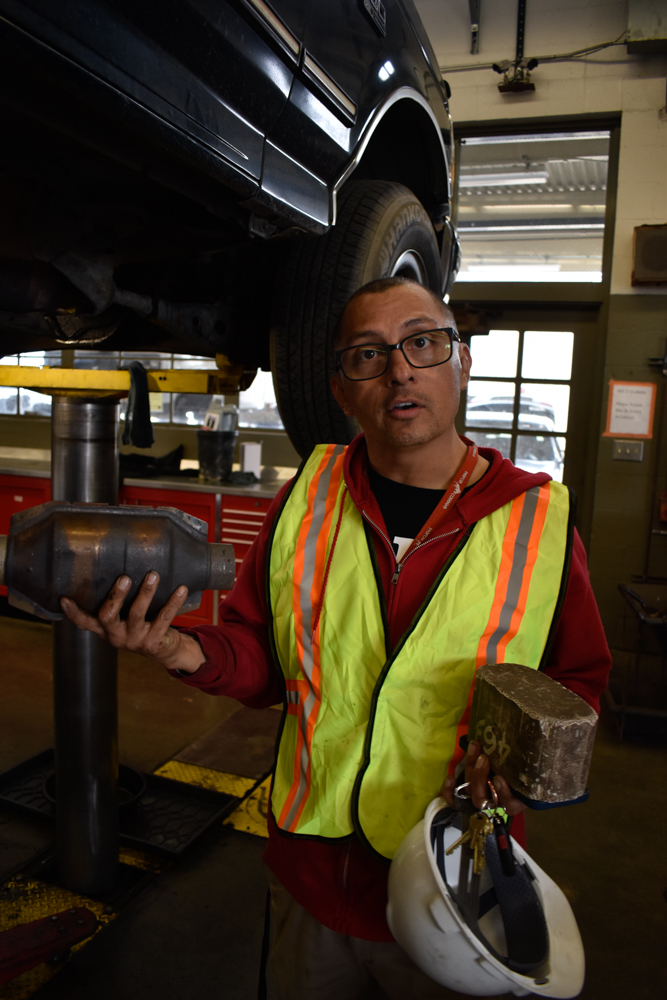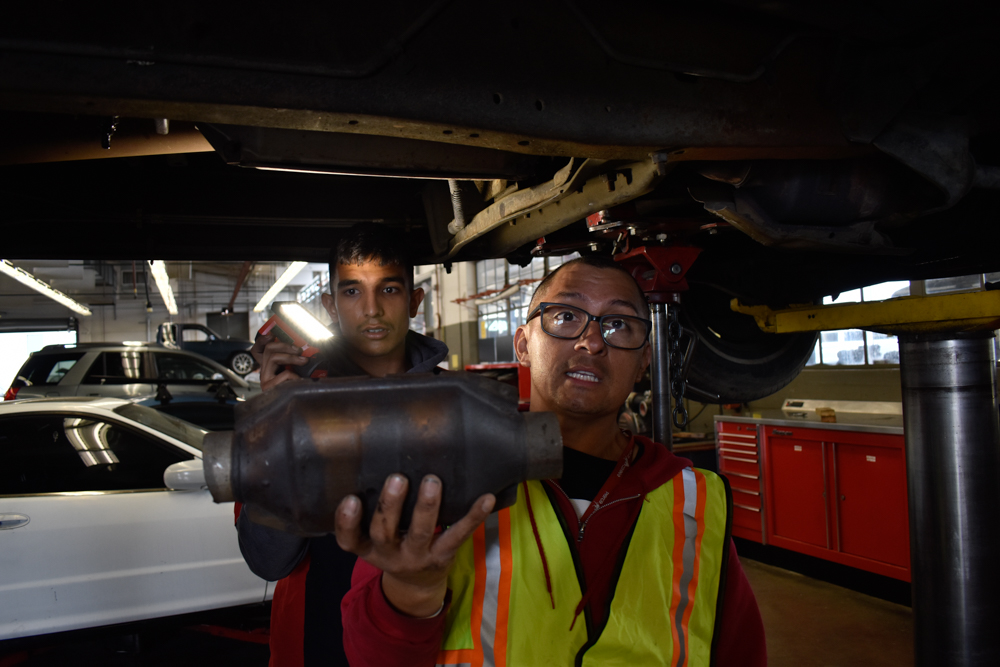

medium inside. This mesh of precious metals inside a catalytic converted reacts toxic products of the incomplete
combustion of fuel into carbon dioxide and water. Taken at the Automotive Service Building in Woodland Hills, Calif., on
May 5, 2023. Photo by Wyatt Sanchez
A catalytic converter was stolen in Lot 7 of Pierce College on April 17, raising some concerns about the safety of faculty and student cars on campus.
Chemistry Professor Benny Ng got out of meetings shortly after 6 p.m. to discover the catalytic converter of his car was stolen. He started his car and heard a strange noise, and instantly knew something was wrong.
“I turned on my car and tried to back up when I heard a loud jet-engine sound,” Ng said, “I knew right away that my catalytic converter was probably gone.”
Although this was perhaps the first case of a catalytic converter being stolen on Pierce’s campus, this is only one of the many cases of converters being stolen across the county.
Approximately 8,000 converters were stolen in 2022, according to the Los Angeles Times.
Catalytic converters are responsible for filtering out the different chemicals a car produces, including nitrogen oxide and carbon dioxide.They rest directly behind the muffler.
These converters are high value because they contain metals including platinum, palladium and rhodium, and they can be worth approximately $2,000.
Some of the vehicles being targeted are Toyota Priuses, Camrys and Highlanders because of the easy accessibility and higher quality materials used in their converters. Automotive Technology Professor Alex Villalta spoke more as to why Toyotas are targeted often.

“Toyota is prevalent not only in the United States but all over the world,” Villalta said. “They’re trying to minimize their pollution because they have a lot, so their minerals are a lot more effective than other manufacturers.”
Catalytic converters are also high ticket items because of how quick they are to remove from cars. The entire process takes a short amount of time.
Deputy Isaac Jorge from the Pierce College Sheriff’s Department shared some reasons why these converters are so easily stolen.
“It’s very quick,” Jorge said. “They come, jack up the car, and in 30 seconds to a minute they’re out.”
The penalty for being caught with a stolen catalytic converter or stealing a converter is a felony, and the LAPD has task forces such as the Taskforce for Regional Auto Theft Prevention (TRAP) team and the Catalytic Converter Task Force (CCTF) to dedicate more attention to these thefts.
In an effort to deter these thefts, Pierce’s automotive department has held several etching events, where students and teachers can work with the department and LAPD to get their catalytic converters assigned a VIN number.
Although the etchings may not stop the thefts, they make it easier to file claims and alert the sheriff if a catalytic converter is stolen. It also makes it possible to find it being sold for metal.
There are shields that car owners can buy for their vehicle that go underneath the car and limit access with security bolts. Besides that, people have been getting creative in finding ways to protect their catalytic converters from being stolen, including sheet metal, alarm systems or simple signs.
“They’re welding whatever they can,” Villalta said. “They’re trying to do their best to ultimately not be an easy target.”
Security cameras, more lighting and more patrolling around campus are all ways that can prevent more thefts on campus.
“Hopefully we can pick up and record it,” Ng said. “But maybe some more additional cameras can help catch people, or give more footage on what happened and when it happened.”
The Sheriff’s Department is advising that students report any suspicious activity in the parking lots to them, and to park closer to campus whenever possible. They’re also suggesting students and teachers take breaks in between classes to take walks and check on their cars to ease worries.
“If you see something, say something,” Jorge said. “We’ll be there in seconds. If you see someone under a car, give us a call.”



